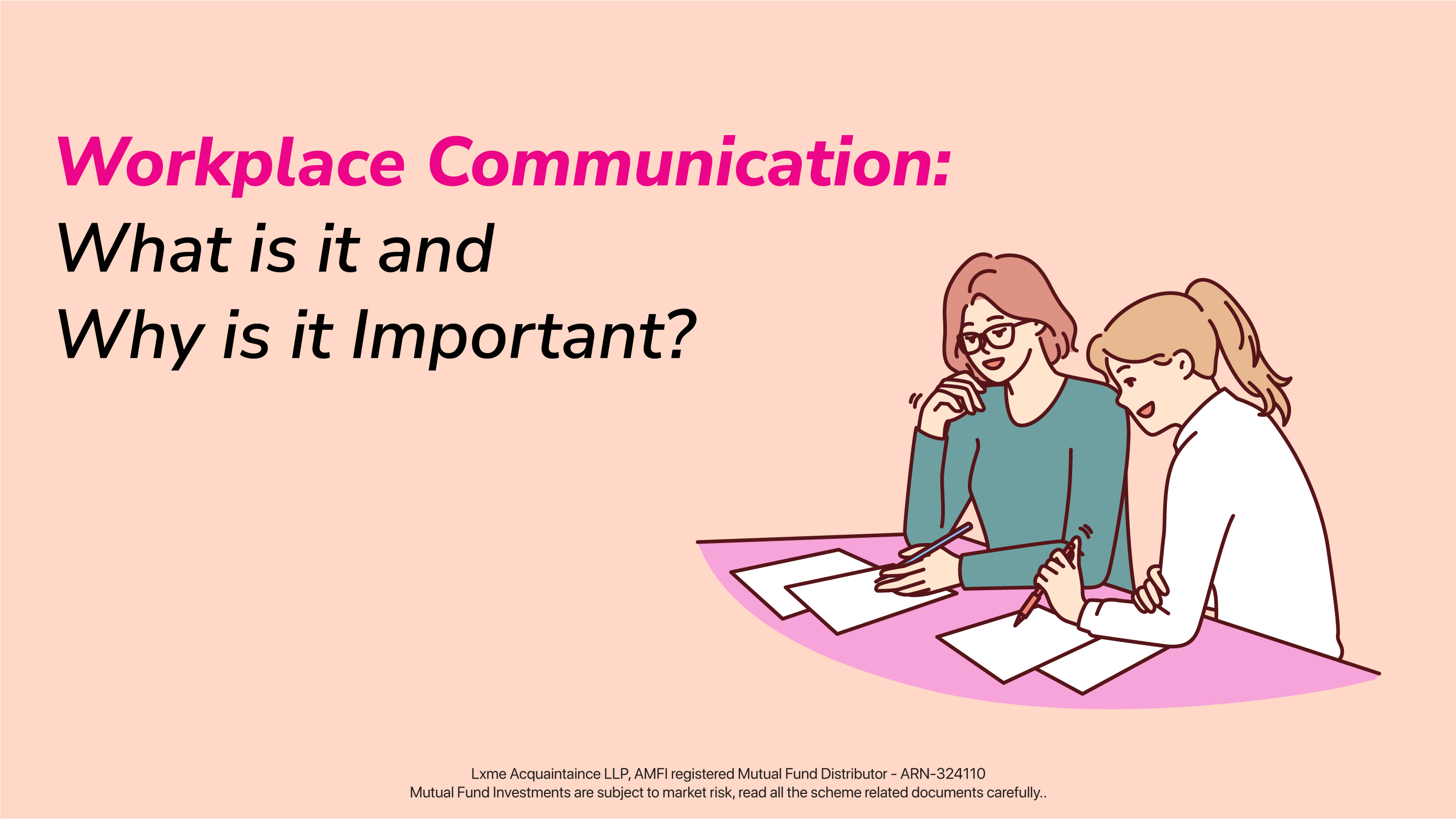Picture this: You’re in a Monday morning meeting, and your manager asks for updates on the project you’ve been working on. Your palms get sweaty, your mind goes blank, and you struggle to articulate your thoughts clearly. Sound familiar? If you’re nodding your head right now, you’re not alone. Many of us have been there, especially as women navigating the professional world.
Communication in the workplace isn’t just about speaking up in meetings or writing emails. It’s the foundation that determines whether you’ll thrive in your career or constantly feel like you’re swimming against the tide. Let’s understand what workplace communication really means and why it’s absolutely crucial for your professional success.
What Exactly Is Workplace Communication?
Workplace communication is essentially how we share information, ideas, and feelings with our colleagues, managers, clients, and stakeholders. It’s not just the words we speak or write; it includes our body language, tone of voice, listening skills, and even the timing of our messages.
Think about your typical workday. You might start with checking emails, attending meetings, collaborating on projects with teammates, presenting ideas to your boss, or even having casual conversations during chai breaks. All of these interactions contribute to communication within the workplace.
The Critical Importance of Effective Communication
The importance of effective communication in your professional life cannot be overstated. It’s the difference between being seen as a valuable team player and being overlooked for promotions. Here’s why it matters so much:
Building Strong Professional Relationships
When you communicate clearly and empathetically, you build trust with your colleagues. This trust translates into better collaboration, more opportunities, and a supportive work environment. Remember, people want to work with those they understand and feel understood by.
Career Advancement Opportunities
The importance of communication skills in the workplace becomes crystal clear when promotion time comes around. Leaders need to articulate vision, provide feedback, resolve conflicts, and inspire teams. If you can’t communicate your ideas effectively, how can you expect to lead others?
Reducing Workplace Stress and Conflicts
Clear communication prevents misunderstandings that often lead to workplace drama and stress. When expectations are communicated properly, everyone knows what’s expected of them, leading to better work life balance for women who are already juggling multiple responsibilities.
Enhancing Team Productivity
Teams that communicate well together achieve more. When information flows smoothly, projects move faster, deadlines are met, and everyone feels more satisfied with their work.
The Unique Challenges for Indian Working Women
We as women face some unique communication challenges. Cultural expectations sometimes discourage us from speaking up assertively. We might worry about being perceived as “too aggressive” or “difficult to work with.” There’s also the added pressure of proving ourselves in male-dominated industries.
However, recognizing the importance of communication in professional life means understanding that your voice matters. Your perspectives, ideas, and contributions are valuable, and learning to communicate them effectively is not just beneficial, it’s essential.
Speaking of professional growth, once you start advancing in your career and earning more, it’s crucial to not just save your money but also invest it to grow it. You want to make your money work harder than you do, and you can do that very easily with Lxme, India’s 1st financial platform for women.
Types of Workplace Communication
Understanding different types of communication in the workplace helps you choose the right approach for different situations:
Verbal Communication includes face-to-face conversations, phone calls, video conferences, and presentations. This is where your tone, pace, and clarity matter most.
Written Communication encompasses emails, reports, messages, and documentation. Here, your ability to write clearly and concisely becomes crucial.
Non-verbal Communication involves body language, facial expressions, and gestures. It carries significant weight in professional interactions.
Digital Communication has become increasingly important, especially with remote work becoming more common. This includes using collaboration tools, social media for professional networking, and virtual meeting etiquette.
Practical Strategies for Better Workplace Communication
The importance of communication skills in the workplace becomes actionable when you implement specific strategies:
Start by being an active listener. Really hear what others are saying instead of just waiting for your turn to speak. Ask clarifying questions and summarize what you’ve understood to ensure you’re on the same page.
Practice expressing your ideas clearly and concisely. Before important meetings, jot down key points you want to communicate. This preparation helps you stay focused and confident.
Learn to give and receive feedback gracefully. Communication within the workplace often involves difficult conversations, and handling them professionally sets you apart as a mature professional.
Develop your emotional intelligence. Understanding your own emotions and reading others’ emotional cues helps you communicate more effectively in various situations.
The Long-term Impact on Your Career
The importance of effective communication extends far beyond your current role. As you progress in your career, communication skills become even more critical. Whether you’re leading a team, presenting to clients, or networking with industry peers, your ability to communicate effectively will determine your success.
The journey to becoming an excellent communicator takes time and practice, but the importance of communication in professional life makes this investment worthwhile. Start small, be consistent, and watch how improved communication transforms not just your career, but your entire professional experience.
FAQs
What is effective communication in the workplace?
Effective communication in the workplace means clearly conveying your message while ensuring the receiver understands it correctly. It involves active listening, choosing appropriate channels, being concise yet comprehensive, and adapting your communication style to your audience.
Why is good communication important for career success?
Good communication is crucial for career success because it builds trust, demonstrates leadership potential, and enhances collaboration. It helps you articulate your achievements during appraisals, network effectively, and resolve conflicts professionally. Strong communicators are often considered for promotions because they can inspire teams, present ideas convincingly, and represent the organization well.
What are the different types of workplace communication?
Workplace communication includes four main types: verbal (face-to-face conversations, meetings, presentations), written (emails, reports, documentation), non-verbal (body language, facial expressions, gestures), and digital (video calls, collaboration tools, instant messaging). Each type serves different purposes and requires specific skills.
How can I improve my communication skills at work?
Start by practicing active listening and asking clarifying questions to ensure understanding. Prepare key points before important conversations or meetings. Seek feedback from trusted colleagues about your communication style. Join public speaking groups or attend communication workshops. Practice writing concisely and proofread your emails. Observe successful communicators in your workplace and learn from their techniques. Most importantly, step out of your comfort zone regularly to build confidence in various communication scenarios.
Further read:












